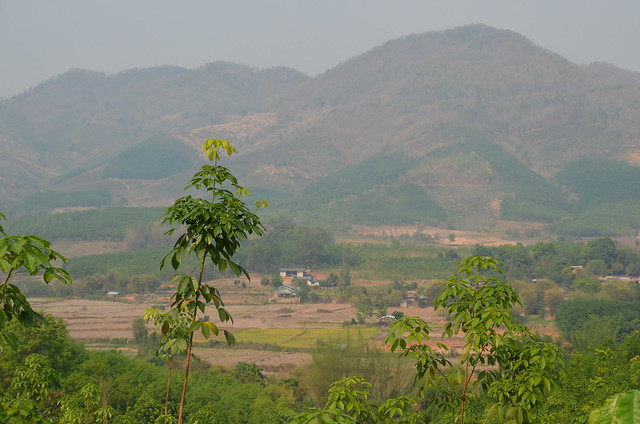New mining bill pleases businesses, but harms society: Civil society groups
Prachatai 03 August 2016
More than a dozen of civil society groups have urged the Thai authorities not the pass the new Mining Bill, saying that while deregulating red tapes for mining businesses, the bill will do more harm than good to the society.
Khon Rak Baan Koed Group (KRBK), anti-mine activist group comprise residents of six villages of Wang Saphung District of the northeastern province of Loei, the Assembly of NGOs for the Protection and Conservation of Environment and Natural Resources (ANPCENR) and 27 other civil society groups on Tuesday, 2 August 2016, submitted a joint petition to Surachai Liengboonlertchai, Deputy Head of the National Legislative Assembly (NLA).
In the petition, the 29 civil society groups from across the nation urged the NLA to halt the process to put a rubber-stamp on the new Mining Bill and withdraw the draft bill entirely.
According to the group and communities, which have been affected by mining activities, the new Mining Bill in comparison to the 1967 Mining Act and The 1992 Enhancement and Conservation of National Environmental Quality Act ignores the welling being of the environment and local communities.
The group points out the the bill will deregulates environmental regulations while cutting short the process to grant mining concessions to mining corporations at the costs of environment and well being of communities.
In the new mining bill, the period of time for the state to approve mining concessions is shortened from approximately 310 days under the procedures of the 1967 Mining Act to only about 100-150 days. Moreover, an Environmental Impact Assessment (EIA) and Environmental Health Impact Assessment (EHIA) do not need to be conducted before the concession is granted to the mining operators.
In addition, the new Bill also removes the phrase “important forest watersheds” from Article 80 of the 1967 Mining Bill. This means that the new Mining Bill will not prevent mining businesses from using important forest lands for mining activities, the civil society groups stated.
The 29 civil society organisations further states that the bill also lacks standardised regulations on the transportation of mined ores, which could cause serious harms to the environment.
The NLA Deputy Head accepted the petition from the group, saying that he will pass it on to the NLA subcommittee who are currently considering the bill, adding that the NLA will finish reviewing it in September.
He said that the NLA, however, has no authorities to withdraw the bill, but only to amend it since the bill was proposed by the cabinet.
During the previous civilian administration, due to pressure from several environmental groups and community rights activist groups who strongly opposed the proposals to amend the 1967 Mining Act, a draft of the new Mining Bill was dismissed by parliament.
In 2014, however, it was brought back by the Department of Primary Industry and Mines (DPIM) and picked up by the junta’s National Council for Peace and Order (NCPO), while martial law can still be used to silence opposition to the bill.
According to Lerdsak Kamkongsak, an environmental activist and researcher based in the northeast, several articles of the new mining bill obviously show that the junta’s Cabinet is giving a green light to mining corporates to raise the profit margins for shareholders as quickly and as much as possible regardless of environmental and social costs.

134,664.5 acre of the protected potential mining areas of Loei province, which the Ministry of Industry has the authority to give out concessions to mining operators

Wang Saphung villagers stage rally against the mine, the banner (center) reads “Loving the mine is a dog, loving the forest is a human”


